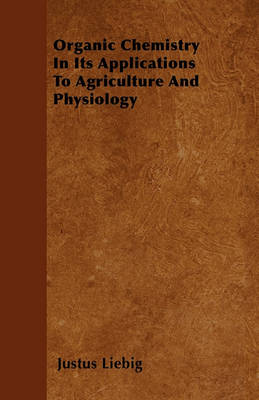Cambridge Library Collection - Botany and Horticulture
1 total work
Organic Chemistry In Its Applications To Agriculture And Physiology
by Justus Liebig
Published 13 May 2009
German chemist and teacher Justus von Liebig (1803-73) first gained recognition for his pioneering experimental work in organic chemistry at the University of Giessen. His laboratory-based teaching methods also influenced chemical education across Europe. The potential applications of chemistry in agriculture and physiology became the main focus of his research in later years. In this highly influential 1840 work, Liebig rejects the prevalent humus theory of plant nutrition and argues that crop yield is limited by the scarcest element from the pool of nitrates and minerals available to the plant. By 1848, Liebig's study had been reissued seventeen times and translated into eight languages. This 1840 English edition was prepared by his student Lyon Playfair (1818-98), who presented Liebig's findings to the British Association for the Advancement of Science. Liebig's 1842 publication detailing the chemical basis of animal metabolism is also reissued in this series in English translation.
